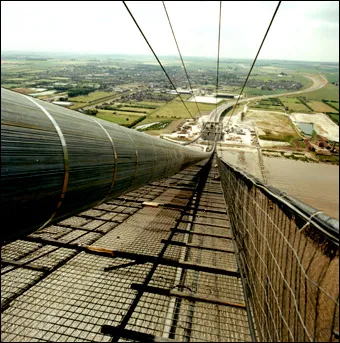The official reopening of a bridge badly damaged in the Cumbria floods has taken place. Bouthrey bridge, just off the A5084 between Water Yeat and Nibthwaite in South Lakeland, was severely damaged by the some of the heaviest rainfall ever recorded in England in November 2009. A temporary bridge was constructed as an interim measure and work began on repairing the main bridge.
April 25, 2012
Read time: 2 mins
The official reopening of a bridge badly damaged in the Cumbria floods has taken place. Bouthrey bridge, just off the A5084 between Water Yeat and Nibthwaite in South Lakeland, was severely damaged by the some of the heaviest rainfall ever recorded in England in November 2009. A temporary bridge was constructed as an interim measure and work began on repairing the main bridge. The work has been funded by 5432 Department for Transport capital funding which was put in place immediately following the floods in 2009. The type of repair was chosen after consultation. The work was contracted to 2958 Amey and a local contractor Ian Shaw, while 2762 Capita Symonds designed the bridge. The requirement to work within 2759 Environment Agency timeframes and additional environmental considerations had to be factored into the planning process, as the bridge is a Grade II listed structure. The Environment Agency worked closely with the council and contractors to manage flood risk throughout the construction of the new bridge, as well as protecting the local environment. In addition the Environment Agency is continuing to work with communities across Cumbria to look at ways to reduce the risk of flooding. Following the opening of Bouthrey bridge, Workington’s Northside bridge, where work is ongoing to provide a replacement bridge by May 2012, will be the only key road bridge in Cumbria that was either destroyed or damaged in the 2009 floods that is still to be replaced. In the immediate flood aftermath 20 road bridges were closed. Bouthrey bridge was opened by Cumbria County Council’s chairman, John Woolley.








